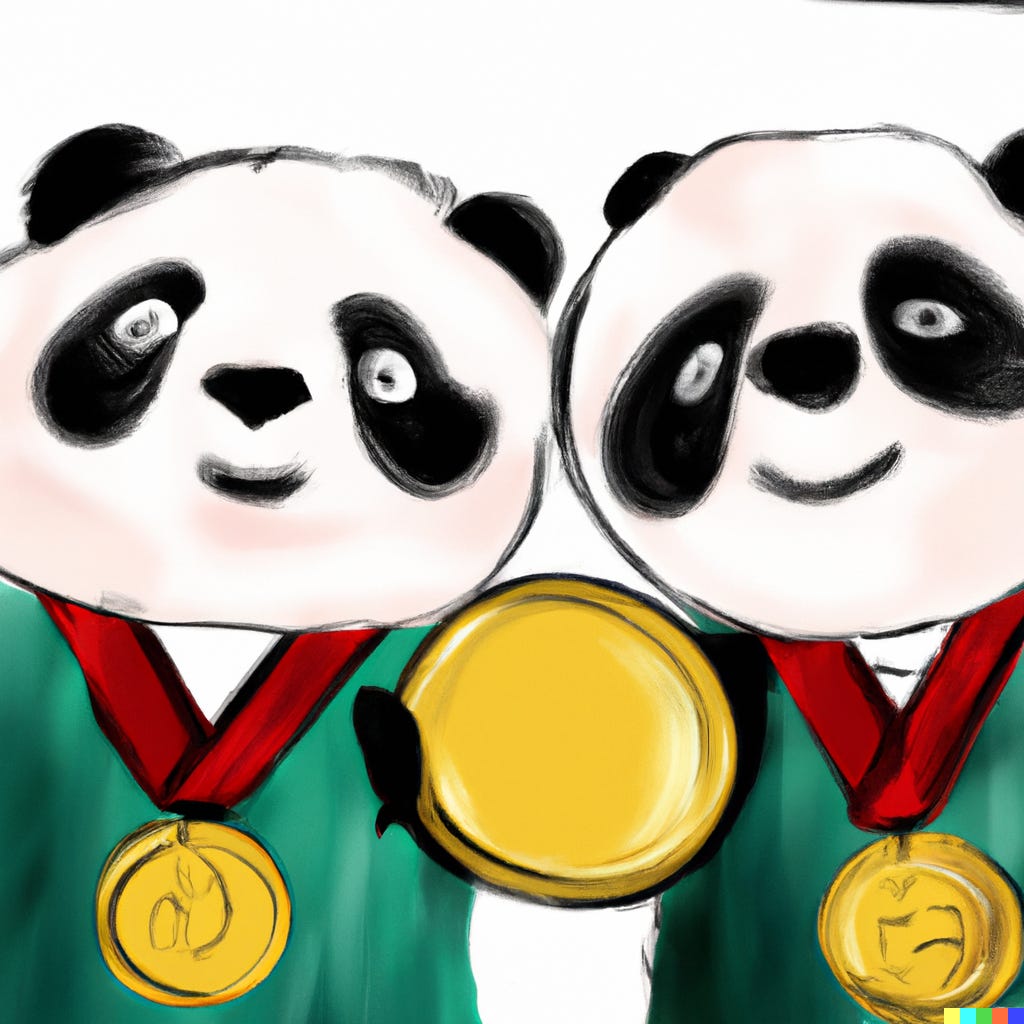In a contrast from last week's topic, we'll look at a purely positive one this week: The Nobel Prize. The various prizes were awarded over the last few weeks, with the final one (in economics) awarded on October 9th. Nobel Prizes are awarded in a variety of different fields:
- physics
- chemistry
- physiology or medicine
- literature
- peace
- economics
While you can find information about all of the prizes at https://NobelPrize.org, and we normallhy lump them all together, they are actually awarded by different bodies:
- The physics and chemistry prizes are awarded by the Royal Swedish Academy of Sciences,
- The prize in physiology or medicine is awarded by the Karolinska Institute, a medical school in Stockholm,
- The prize in literature is awarded by the Swedish Academy,
- The prize in peace is awarded by the Norwegian Nobel Committee, set up by the Norwegian parliament, and
- The prize in economics is awarded by the Royal Swedish Academy of Sciences.

The economics prize was set up by the Central Bank of Sweden in 1968, in memory of Alfred Nobel, whose will set up the other prizes. So officially speaking, it's not a Nobel Prize in Economics, but rather the Nobel Memorial Prize, and isn't as prestigious. That’s why my economics prize sits behind my literature and peace prizes on their shelf in my office.
Research doesn't seem like it should be that hard: You ask an interesting question that no one has asked before, and then you try to find the answer to that question. But finding a good, interesting research question is difficult. And then trying to answer it can take years, or even decades, of work. Along the way, you'll face lots of frustration. Plus, the academic world is quite demanding, expecting you to teach and publish papers at a very fast pace.
Just keeping up as an academic researcher is hard. (I'm glad that I went back to consulting after finishing my PhD, that's for sure!) Asking and answering particularly impressive questions is even harder, and that's what the research-oriented Nobel Prizes are about.
The prizes in literature and peace are a bit different, of course. They don't go to researchers, but rather to people who improve our world, either through the written world or for their efforts to reduce violence in the world.
It seems (from https://www.nobelprize.org/alfred-nobel/alfred-nobels-will/) that Alfred Nobel's family wasn't too happy that his will designated that most of his money should go toward the establishment of the prize, rather than to them. It apparently took five years for the prizes to be set up, because of the challenges to the will.
This week, we'll look at the various Nobel Prizes and their winners, slicing and dicing the data to better understand who has received it over the years.
Data and eight questions
This week's data comes from the Nobel Foundation (https://www.nobelprize.org/), based on Stockholm, Sweden. They offer an API that developers can use to retrieve information about the prizes and the prize winners.
Information for developers is at:
https://www.nobelprize.org/about/developer-zone-2/As you can see from that page, the site offers an API allowing you to download information about prize recipients and the prizes themselves. Full documentation is here:
https://app.swaggerhub.com/apis/NobelMedia/NobelMasterData/2.0This week, we'll be looking at transforming that data into something we can and will want to use. Once we've done that, we'll be able to answer all sorts of questions about the prizes and the prize winners. The learning goals for this week's questions include transforming data, joining multiple data frames together, pivot tables, and complex grouping.
Here are the questions; I'll be back tomorrow with my detailed solutions, as well as the Jupyter notebook I used to create my solutions:
- Retrieve all data about the prizes, from https://api.nobelprize.org/2.1/nobelPrizes. (Note that you'll want to specify the a high limit, to ensure that you get all of the data.) Create a data frame from what you got, with the following columns: awardYear (as an integer), category (English version), dateAwarded (turn into a DateTime), prizeAmount, prizeAmountAdjusted, laureates (it'll be a list of Python dicts), and topMotivation.
- Retrieve all data about the laureates, from https://api.nobelprize.org/2.1/laureates. (Once again, you'll want to specify the a high limit, to ensure that you get all of the data.) Create a data frame from what you got, with the following columns: id, givenName (English), familyName (English), gender (English), birth (only the year), death (only the year), orgName (if available). Make the "id" column the index.

